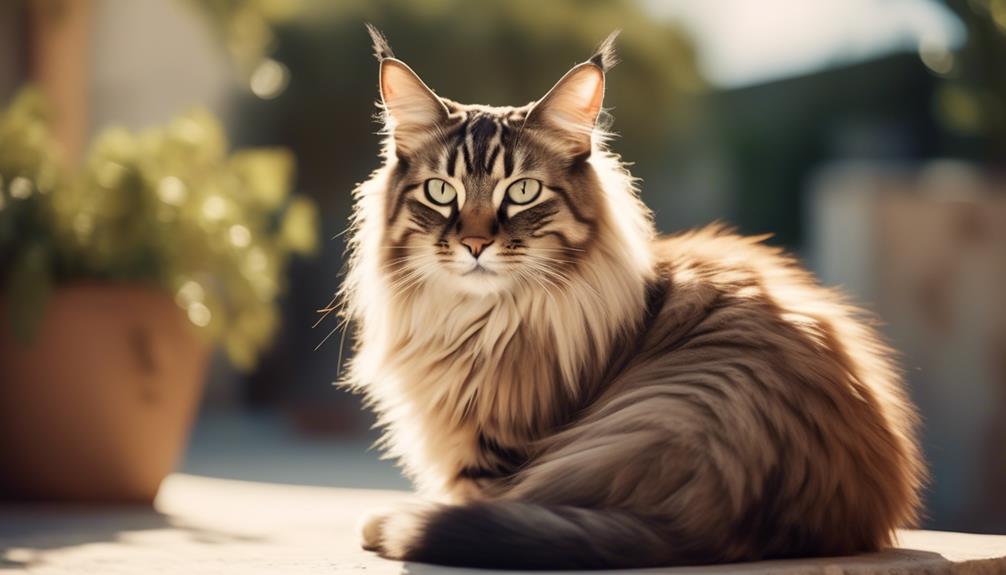
The Cyprus cat, with its rich history and unique characteristics, is a breed that captivates the imagination.
Originating from the ancient island of Cyprus, these felines have a lineage that spans millennia, making them a living link to the past.
But what exactly sets them apart? How do their physical attributes and temperament contribute to their allure?
In this article, we will explore the fascinating world of Cyprus cats, delving into their origins, appearance, personality traits, and more.
So, if you’re curious to uncover the secrets of this ancient breed, join us as we embark on a journey into the captivating world of Cyprus cats.
Key Takeaways
- Cyprus cats are a medium-sized breed known for their intelligence, playfulness, and adaptability.
- When adopting or buying a Cyprus cat, prioritize rescue organizations, shelters, or reputable breeders who prioritize cat well-being and follow ethical practices.
- Cyprus cats have a distinctive physical appearance: lean frame, short, dense coat, almond-shaped eyes, and bushy tails. They have a friendly and intelligent temperament.
- Regular vet check-ups, grooming, balanced diet, exercise, and mental stimulation are important for Cyprus cats’ overall health and well-being. They are generally healthy and known for their longevity.
Origin and History
The origin and history of the Cyprus cat breed can be traced back to the ancient island of Cyprus, where it is believed to have existed for over 5,000 years, making it potentially one of the oldest cat breeds.
These cats have a long lineage and have played historical roles as guardians against rodents in homes, grain stores, and ships.
They are believed to have predated Egyptian cats by around 4,000 years, with the earliest record of cat domestication dating back about 9,500 years in Cyprus.
The Cyprus cat breed has survived and thrived over the centuries, maintaining its unique physical traits and friendly, intelligent temperament.
They continue to be cherished and admired for their long-lasting presence in the feline world.
See another cat breed profile.
Desert Lynx Cat Breed
Size and Weight
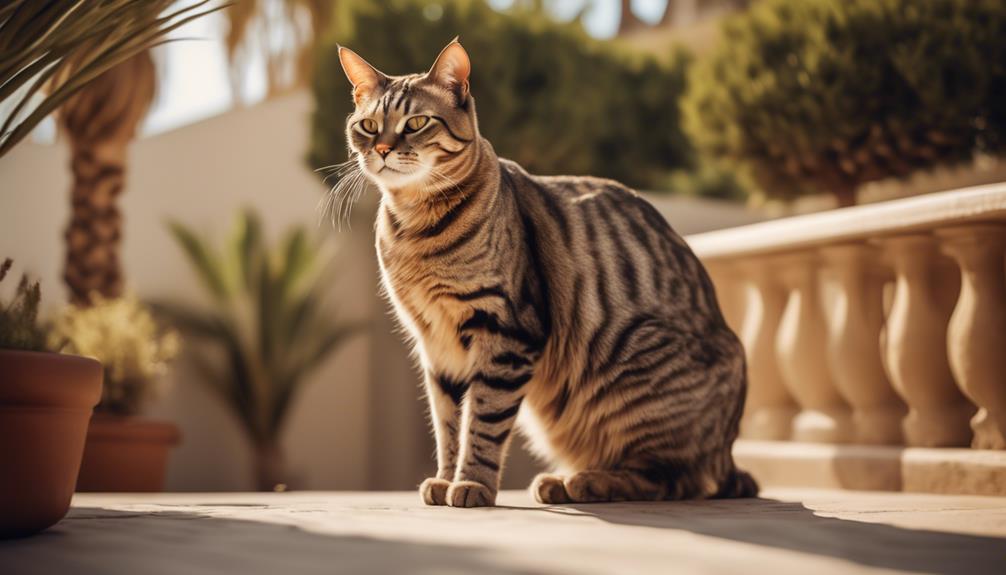
In examining the characteristics of the Cyprus cat breed, one important aspect is their size and weight.
Cyprus cats are medium-sized, with an average weight of eight to 16 pounds.
They have a lean and medium-sized frame, giving them a strong and athletic appearance.
Their size makes them agile and quick, making them excellent hunters.
However, it’s worth noting that individual cats may vary in size and weight, with some falling on the lower end of the spectrum.
Coat Types and Colors

Cyprus cats exhibit a variety of coat types and colours. Their coats can be either short or semi-longhaired.
The short-haired variety has a dense coat that requires weekly brushing to prevent matting.
On the other hand, semi-longhaired cats need more frequent grooming to maintain their coat’s condition.
As for their colours, Cyprus cats typically have tabby patterns, but they can also come in a range of other colours.
These may include solid colours such as black, white, or grey and bi-colour or tortoiseshell patterns.
Cyprus cats’ diverse coat types and colours contribute to their unique and beautiful appearance, making them even more captivating as pets.
Temperament and Personality Traits
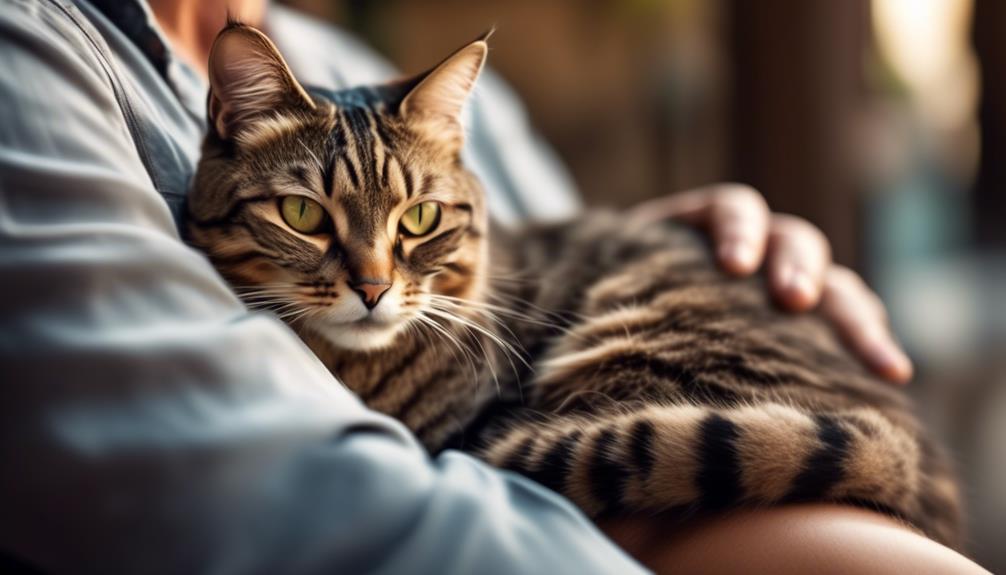
With their diverse coat types and colours adding to their captivating appearance, Cyprus cats also possess distinct temperaments and personality traits that make them unique pets.
Here are some key characteristics of their temperament and personality:
- Playful and energetic: Cyprus cats have a natural curiosity and love to play. They enjoy interactive toys and games that provide mental and physical stimulation.
- Affectionate and social: These cats form strong bonds with their owners and enjoy being around humans. They are known for their caring nature and often seek attention and affection.
- Intelligent and adaptable: Cyprus cats are smart and quick learners. They adapt well to different environments and are versatile and flexible.
- Independent: While they enjoy human companionship, Cyprus cats value independence. They are self-sufficient and can entertain themselves when necessary.
Exercise and Play Needs
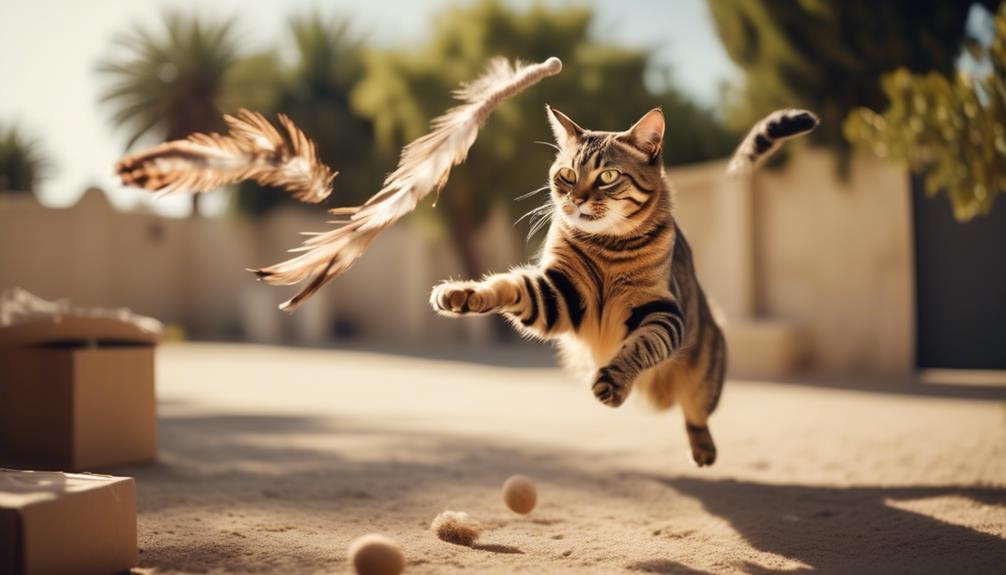
To ensure the overall well-being of Cyprus cats, it is crucial to understand and fulfil their exercise and play needs.
Cyprus cats are energetic and require regular physical activity to maintain their health and mental stimulation.
They enjoy exploring their surroundings, climbing, and engaging in interactive games.
It is essential to provide a large living environment with plenty of space for them to roam and play.
Regular playtime sessions with their owners or interactive toys can help meet their exercise needs.
Engaging in play helps them burn off excess energy, provides mental stimulation, and prevents behavioural problems.
Owners can ensure Cyprus cats lead happy and healthy lives by incorporating regular exercise and play into their daily routines.
Adoption and Rescue Organizations
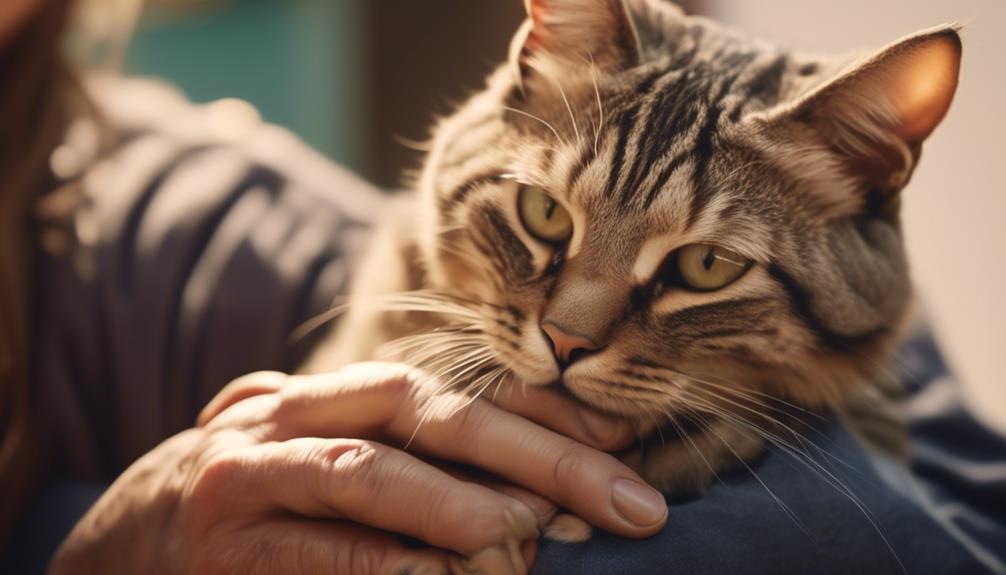
Understanding the importance of adopting and supporting rescue organizations contributes significantly to the well-being and welfare of Cyprus cats.
By adopting rescue organizations or shelters, individuals can provide a loving home for a cat in need and help reduce the number of stray and abandoned cats.
Additionally, supporting rescue organizations financially or through volunteering allows them to continue their vital work of rescuing, rehabilitating, and rehoming Cyprus cats.
When considering adoption, it is essential to prioritize rescue organizations that prioritize the cat’s well-being and conduct thorough screenings to ensure its health and temperament.
It is also crucial to choose a reputable breeder who follows ethical practices, as responsible breeding contributes to the overall welfare of Cyprus cats.
Choosing a Reputable Breeder
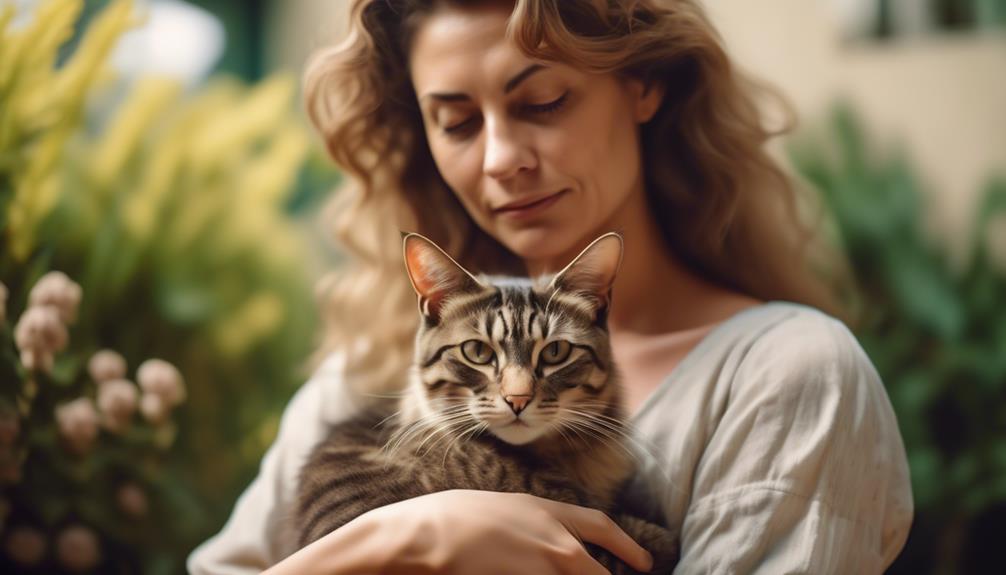
When selecting a reputable breeder for a Cyprus cat, it is important to prioritize those who adhere to ethical practices and prioritize the well-being of the cats.
Reputable breeders prioritize the health and temperament of their cats and conduct necessary health screenings to ensure the cats are free from genetic health conditions.
They provide a nurturing environment that supports the physical and emotional well-being of the cats.
It is crucial to conduct thorough research to discourage unethical breeding practices and ensure that the breeder is reputable and trustworthy.
By choosing a reputable breeder, you contribute to the overall welfare of Cyprus cats and support responsible breeding practices.
Ethical Breeding Practices
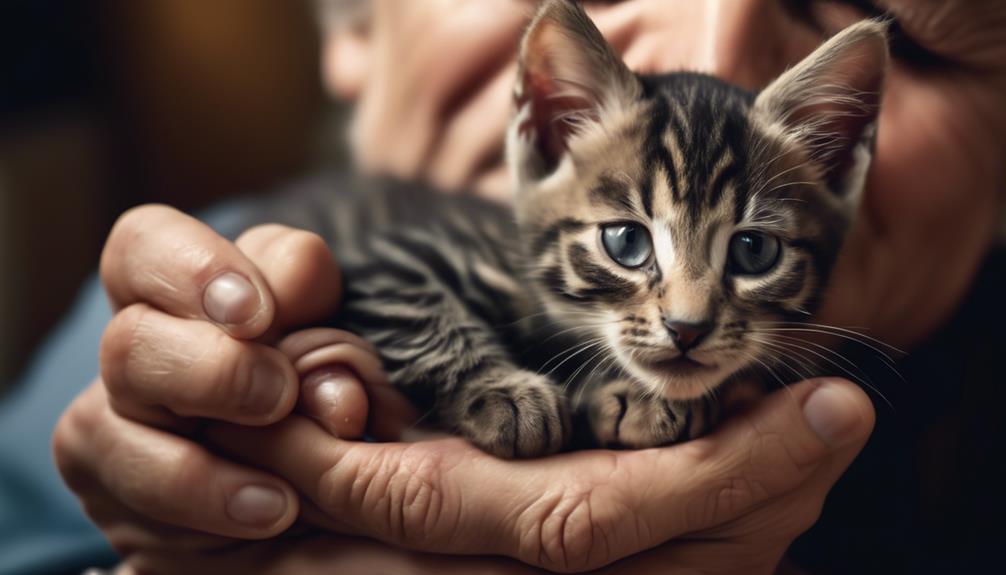
One essential aspect of responsible cat breeding is the adherence to ethical practices that prioritize the health and well-being of the cats.
When it comes to breeding Cyprus cats, certain guidelines should be followed to ensure ethical practices:
Breeder Responsibilities:
- Prioritize the health and temperament of the cats, conducting necessary health screenings.
- Provide a nurturing environment that promotes the physical and mental well-being of the cats.
Discouraging Unethical Practices:
- Thoroughly research breeders to avoid supporting unethical breeding practices.
- Avoid breeders who prioritize profit over the health and welfare of the cats.
Physical Characteristics and Distinctive Traits
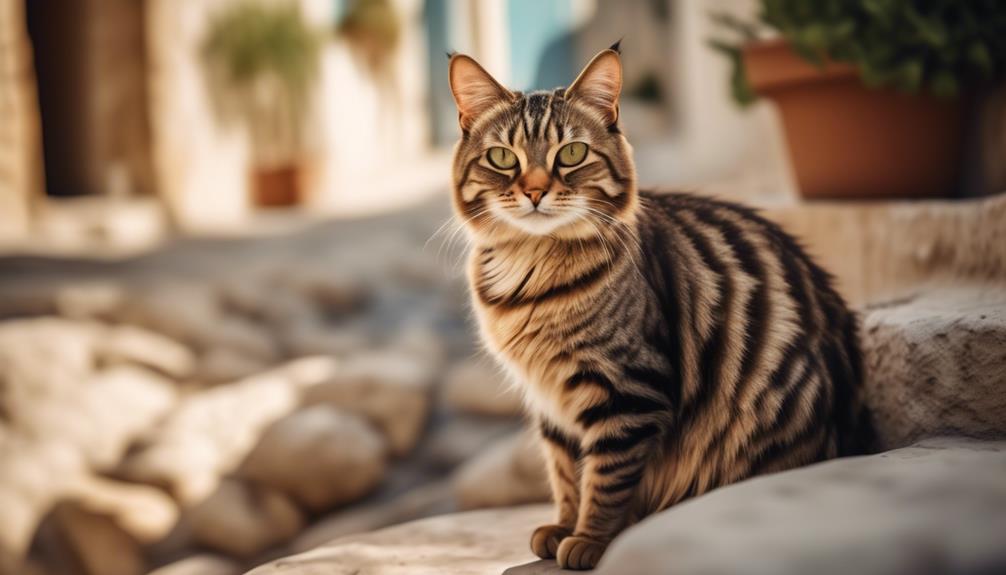
Cyprus cats possess distinct physical characteristics that set them apart from other breeds.
They have a lean, medium-sized frame, short, dense coat, almond-shaped eyes, and bushy tails.
These cats are known for their friendly and intelligent temperament, making them excellent companions.
They have historical significance as guardians against rodents in homes, grain stores, and ships.
Cyprus cats are believed to be one of the oldest cat breeds, predating Egyptian cats by approximately 4,000 years.
The earliest cat domestication record exists in Cyprus, dating back about 9,500 years.
These cats are generally healthy and known for their longevity.
Regular vet check-ups, balanced diets, exercise, and mental stimulation are essential for overall well-being.
Cyprus Cats as Rodent Guardians
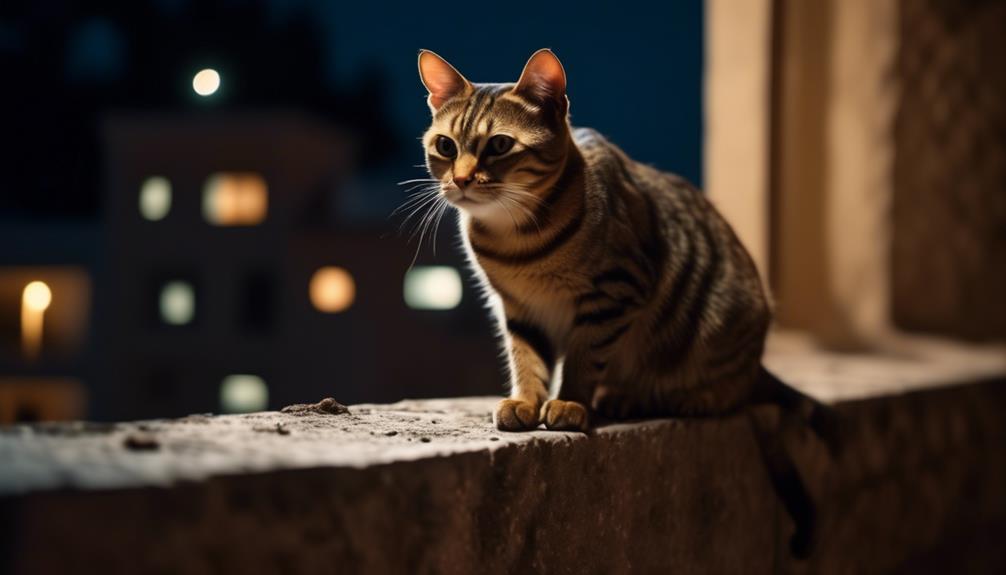
With their historical significance as skilled guardians against rodents in various settings, Cyprus cats have proven their invaluable role in pest control.
For centuries, these agile and intelligent felines have been relied upon to keep homes, grain stores, and ships free from unwanted pests.
Here are two key reasons why Cyprus cats excel in their role as rodent guardians:
Natural Hunting Instincts:
- Cyprus cats possess a strong predatory drive and exceptional hunting skills.
- Their keen senses and quick reflexes make them efficient rodent hunters capable of easily catching and eliminating pests.
Versatility in Environments:
- Cyprus cats adapt well to different environments, making them adaptable pest controllers.
- Whether it’s a rural farm, a busy warehouse, or a cosy home, these cats can adapt their hunting techniques to address rodent problems effectively.
Oldest Cat Breed in History
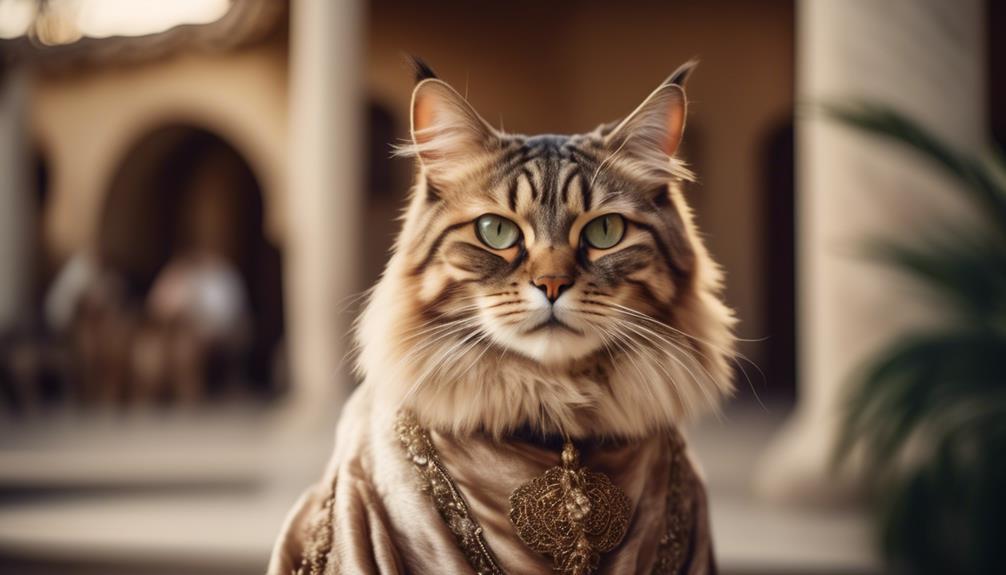
Believed to have existed for over 5,000 years, the Cyprus cat is recognized as one of the oldest breeds in recorded history.
This ancient breed predates Egyptian cats by approximately 4,000 years and holds a significant place in the history of domesticated cats.
The Cyprus cat’s lineage can be traced back to the island of Cyprus, where it played a vital role as a guardian against rodents in homes, grain stores, and ships.
To provide a visual representation of the breed’s characteristics, refer to the table below:
| Characteristic | Description |
|---|---|
| Size | Medium-sized, weighing 7-12 pounds |
| Coat | Short or semi-longhaired, available in various colours and patterns |
| Temperament | Intelligent, playful, curious, adaptable, and affectionate |
| Exercise Needs | Moderate, enjoys exploring, climbing, and games |
| Historical Significance | One of the oldest cat breeds, dating back over 5,000 years |
The Cyprus cat’s rich history and unique characteristics make it a fascinating breed that has captivated cat enthusiasts for centuries.
Health and Longevity
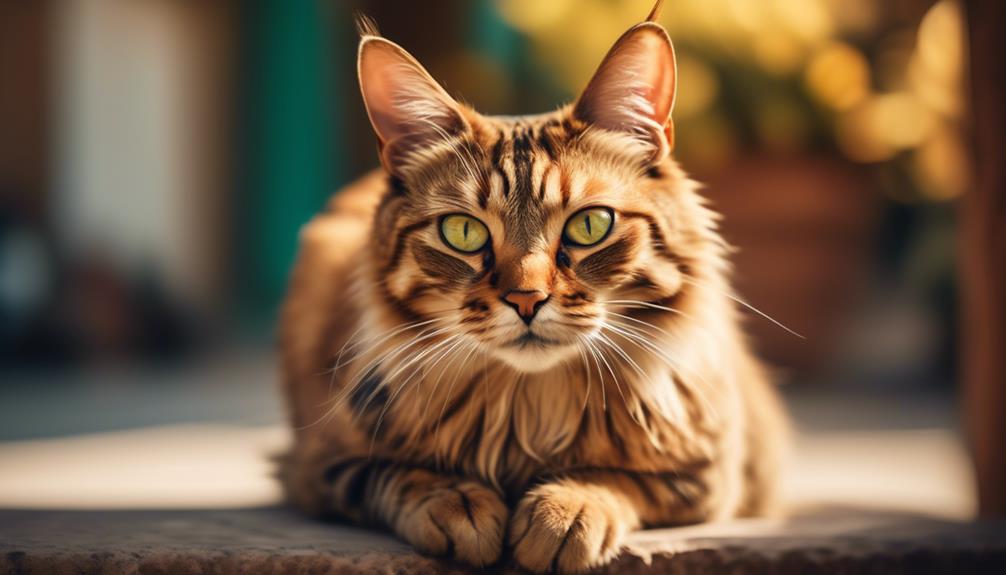
The long-lived nature and well-being of the Cyprus cat breed are of significant interest when discussing their health and longevity.
Longevity:
- Cyprus cats are known for their exceptional longevity, often living well into their late teens or early twenties.
- This breed’s longevity can be attributed to their genetic makeup, as they have evolved over thousands of years to adapt to the harsh conditions of Cyprus Island.
Health:
- Cyprus cats are generally healthy and do not have any breed-specific health problems.
- However, regular vet check-ups are still recommended to monitor for potential genetic health conditions.
- A balanced diet, regular exercise, and mental stimulation are essential for maintaining their overall health and well-being.
Regular Vet Check-ups and Genetic Health Conditions

Regular vet check-ups are crucial for Cyprus cats to monitor and address potential genetic health conditions.
While Cyprus cats are generally healthy and known for their longevity, it is important to ensure their well-being through regular veterinary care.
These check-ups allow for the early detection and management of any genetic health conditions that may be present in the breed.
Additionally, regular vet visits provide an opportunity for vaccinations, parasite prevention, and dental care, all of which contribute to Cyprus cats’ overall health and longevity.
Grooming and Maintenance
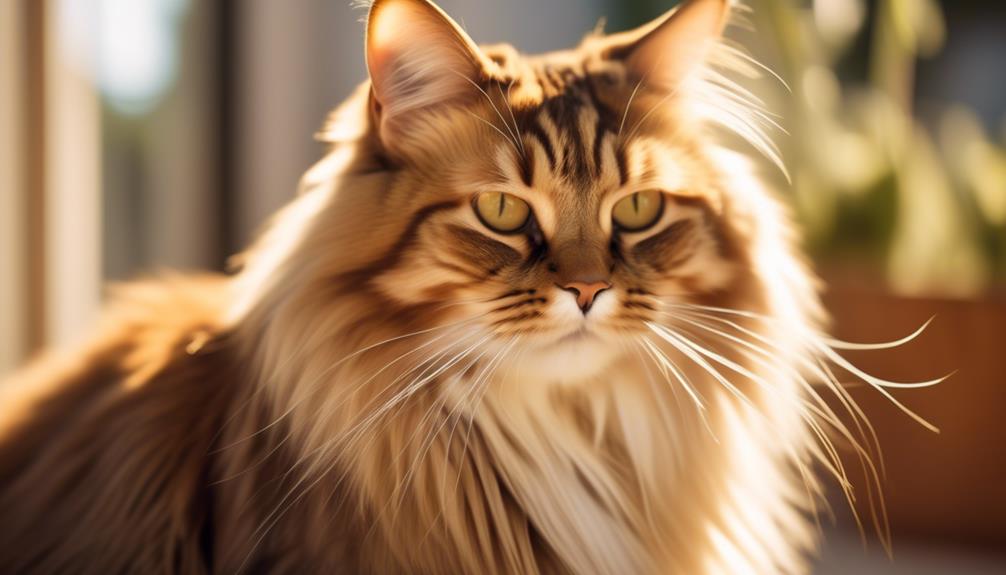
To ensure the well-being and proper care of Cyprus cats, it is essential to establish a regular grooming and maintenance routine.
This will keep their coat healthy and free from matting and contribute to their overall physical and mental well-being.
Here are some key aspects of grooming and maintenance for Cyprus cats:
Coat care:
- Regular brushing to prevent matting and remove loose hair.
- More frequent brushing for semi-longhaired cats.
Hygiene and health:
- Regularly check and clean their ears to prevent infections.
- Brush their teeth regularly to maintain dental hygiene.
Environmental enrichment:
- Provide a scratching post and cat tree to exercise and prevent furniture damage.
- Offer mental stimulation through interactive toys and playtime.
Socialization and Environmental Enrichment
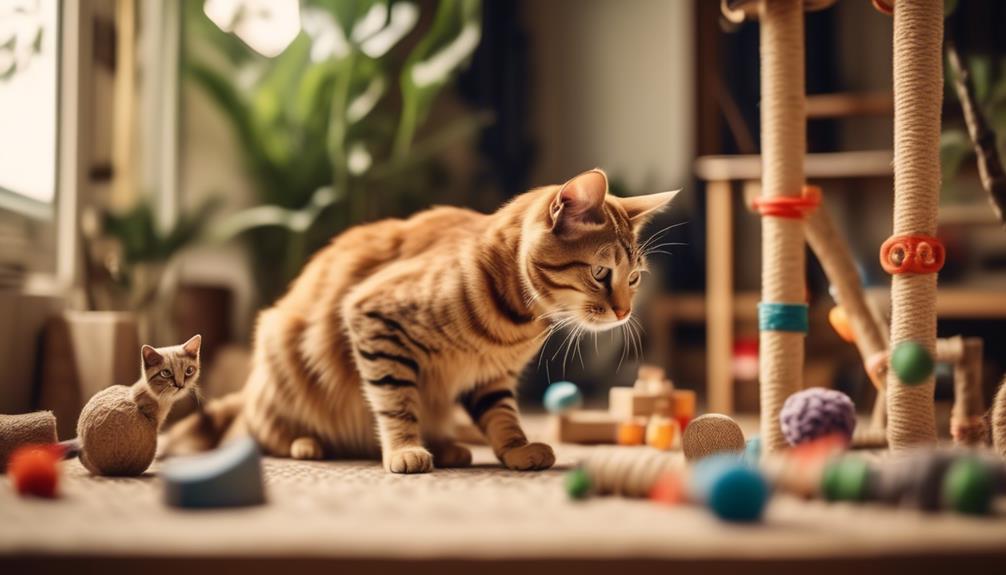
Establishing a well-rounded care routine for Cyprus cats includes ensuring proper socialization and providing environmental enrichment.
Socialization is crucial to helping Cyprus cats develop positive relationships with humans and other animals.
It is recommended to expose them to various stimuli, such as different people, sounds, and environments, from a young age.
This helps them become well-adjusted and confident cats.
Environmental enrichment is equally important for their mental and physical well-being.
Providing them with interactive toys, scratching posts, and climbing structures allows them to exercise their instincts and alleviate boredom.
Additionally, creating safe outdoor spaces or using cat enclosures can allow them to explore and experience the outdoors while remaining protected.
Frequently Asked Questions
Are Cyprus Cats Hypoallergenic?
Cyprus cats are not hypoallergenic. While they are known for their friendly and intelligent temperament, their coat can still produce allergens that may trigger allergies in susceptible individuals.
Regular grooming and cleaning can help reduce allergens.
Do Cyprus Cats Have Any Special Dietary Requirements?
Cyprus cats do not have any special dietary requirements.
They thrive on a balanced diet consisting of high-quality cat food.
However, providing them with proper nutrition and monitoring their weight is important to ensure their overall health and well-being.
How Do Cyprus Cats Interact With Other Pets in the Household?
Cyprus cats generally interact well with other pets, including dogs and cats, as they are social and adaptable.
Proper introductions and gradual acclimation can help ensure a harmonious relationship between the animals.
Can Cyprus Cats Be Trained to Perform Tricks or Commands?
Yes, Cyprus cats can be trained to perform tricks or commands.
They are intelligent and adaptable, making them receptive to training.
Cyprus cats can learn various tricks and commands with patience, positive reinforcement, and consistent training methods.
Are There Any Specific Environmental Enrichment Activities Recommended for Cyprus Cats?
Specific environmental enrichment activities recommended for Cyprus cats include providing interactive toys, puzzle feeders, and scratching posts.
Creating vertical spaces for climbing and exploring and incorporating hiding spots and perches can also enhance their mental and physical stimulation.
Conclusion
In conclusion, the Cyprus cat is a fascinating and ancient breed with a rich history dating back thousands of years.
Their medium size and various coat types and colours make them visually appealing.
Known for their intelligence, playfulness, and affectionate nature, Cyprus cats make wonderful companions.
It is important to prioritize the well-being of these cats by adopting rescue organizations or reputable breeders who focus on health and temperament.
Proper care, regular vet check-ups, and socialization are key to ensuring Cyprus cats’ long and happy lives.




